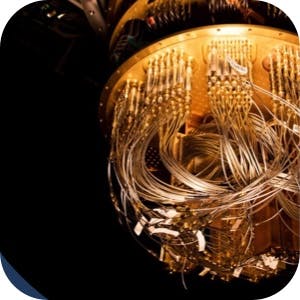- Home
- All updates
- EDGE Insights
- Industries
- Company Search
- My Watchlists (Beta)
All Updates
Germany invests EUR 92.4 million to build its own quantum computers
EKORE raises EUR 1.3 million (~ USD 1 million) in seed funding to strengthen platform
Culina Health raises USD 7.9 million in Series A funding to expand offerings and expand team
ViGeneron receives IND clearance for VG801 gene therapy
Reflex Aerospace ships first commercial satellite SIGI
Vast partners with SpaceX for two private astronaut missions to ISS
Carbios appoints Philippe Pouletty as interim CEO amid plant delay
BlueQubit raises USD 10 million in seed funding to develop quantum platform
Arbor Biotechnologies receives FDA clearance for ABO-101 IND application
Personalis partners with Merck and Moderna for cancer therapy development and investment
COTA partners with Guardant Health to develop clinicogenomic data solutions for cancer research

Quantum Computing
Germany invests EUR 92.4 million to build its own quantum computers
-
The German Government, through the Federal Ministry of Education and Research (BMBF), has invested a sum of EUR 92.4 million (USD 101.4 million) on two quantum projects: QSolid and SPINNING.
-
The five-year project QSolid, which was granted EUR 76.3 million (USD 83.6 million) from the Government, will form a consortium consisting of 25 leading German companies and research institutions to build the nation’s first superconducting-based quantum computer by 2024. It will also focus on building a system that enables quantum calculations for particular applications and a benchmarking platform.
-
The three-year project SPINNING is led by the Fraunhofer Institute for Applied Solid State Physics IAF (FIASSP) in collaboration with 28 other members including companies, research institutes, and universities. It received EUR 16.1 million (USD 17.7 million) from BMBF to build a hybrid quantum processor that incorporates spin-photon qubits based on synthetic diamonds. The first system is expected to have 10-qubits, with plans to later scale up to 100 or more qubits.
Contact us
By using this site, you agree to allow SPEEDA Edge and our partners to use cookies for analytics and personalization. Visit our privacy policy for more information about our data collection practices.